Compost Without the Carry-On: Sustainable Alternatives to Store-Bought Compost Bags
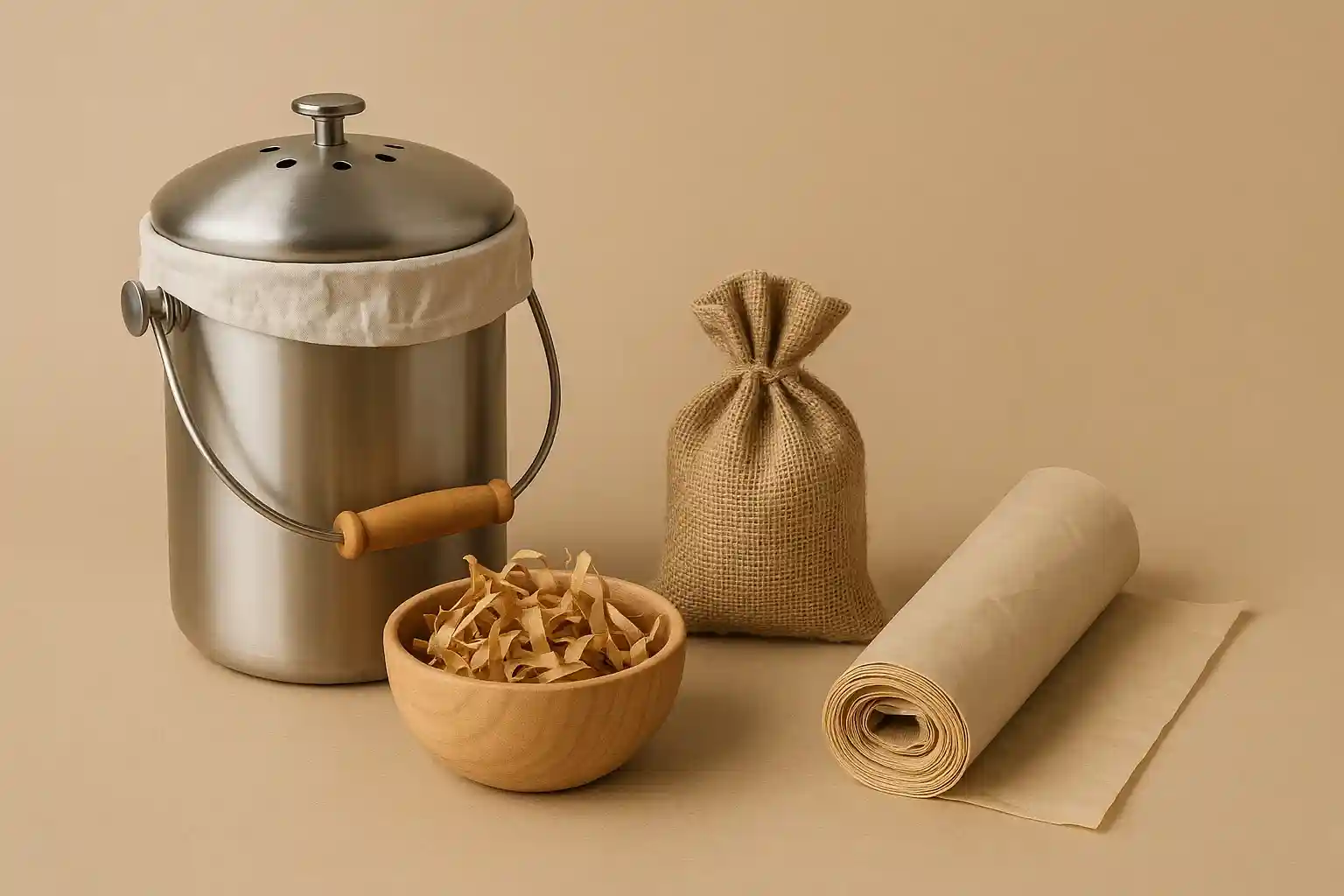
The act of composting is a cornerstone of a zero-waste kitchen, transforming food scraps and yard waste into valuable nutrient-rich soil amendments. To manage the collection of these organic materials before they make their way to the compost bin, many individuals reach for store-bought compost bags, often marketed as biodegradable or compostable. However, these bags, while seemingly a convenient solution, can come with their own set of environmental concerns. Many "compostable" bags are not truly home-compostable and may require specific industrial composting conditions to break down effectively. Even those that are certified compostable still represent a form of single-use packaging. Embracing a truly zero-waste approach to composting necessitates exploring alternatives that minimize or eliminate the need for these store-bought bags.
The environmental impact of store-bought compost bags, even those labeled as compostable, can be more complex than it initially appears. Many compostable plastics require high temperatures and specific microbial environments found in industrial composting facilities to break down properly. In home compost bins, they may degrade very slowly or not at all, essentially acting like regular plastic. Furthermore, the production of these bags still requires resources and energy. Recognizing these limitations, a truly zero-waste kitchen seeks to minimize the introduction of any single-use items into the composting process.
Fortunately, a variety of effective and readily available alternatives can easily replace store-bought compost bags for collecting organic waste. By utilizing newspaper liners, opting for a compost bin without a bag, or creating simple DIY biodegradable liners, individuals can manage their kitchen scraps sustainably, reduce unnecessary plastic consumption, and ensure that their composting efforts are as environmentally friendly as possible. These alternatives offer a way to participate in the cycle of decomposition without relying on commercially produced, often misleadingly labeled, bags.
Composting Cleanly: Exploring Bag-Free and DIY Alternatives
Moving beyond the convenience of store-bought compost bags opens up a world of more sustainable and truly zero-waste methods for managing your kitchen scraps:
Newspaper Liners: The Repurposed and Readily Available Solution
Using newspaper liners in your kitchen compost bin is a simple, free, and highly effective way to contain food scraps without resorting to plastic bags. Old newspapers are readily available in many households and are made from biodegradable paper. Simply layer a few sheets of newspaper at the bottom of your compost bin to absorb excess moisture and make cleanup easier. The newspaper will break down along with the food scraps in your compost pile.
Compost Bin Without a Bag: Embracing the Bare Essentials
The most truly zero-waste approach to kitchen composting is often to simply use a compost bin without a bag or liner. Choose a well-ventilated bin with a tight-fitting lid to minimize odors and fruit flies. Regularly empty the bin directly into your outdoor compost pile or worm bin. For easier cleaning, you can sprinkle a layer of sawdust or shredded paper at the bottom of the bin to absorb moisture.
DIY Biodegradable Liners: Crafting Your Own Solutions
For those who prefer a liner but want a more biodegradable option than store-bought bags, creating your own DIY biodegradable liners can be a sustainable solution. Large leaves (like those from banana trees or comfrey), cardboard scraps, or even thick layers of shredded paper can be used to line your compost bin. These materials will break down naturally along with your food scraps.
Embracing a Truly Zero-Waste Compost Routine
By consciously choosing newspaper liners, opting for a bag-free compost bin, or creating your own biodegradable liners, you can significantly reduce the amount of unnecessary plastic introduced into your composting process. These simple and readily available alternatives ensure that your efforts to recycle organic waste are as environmentally friendly and truly zero-waste as possible.
Related Blogs
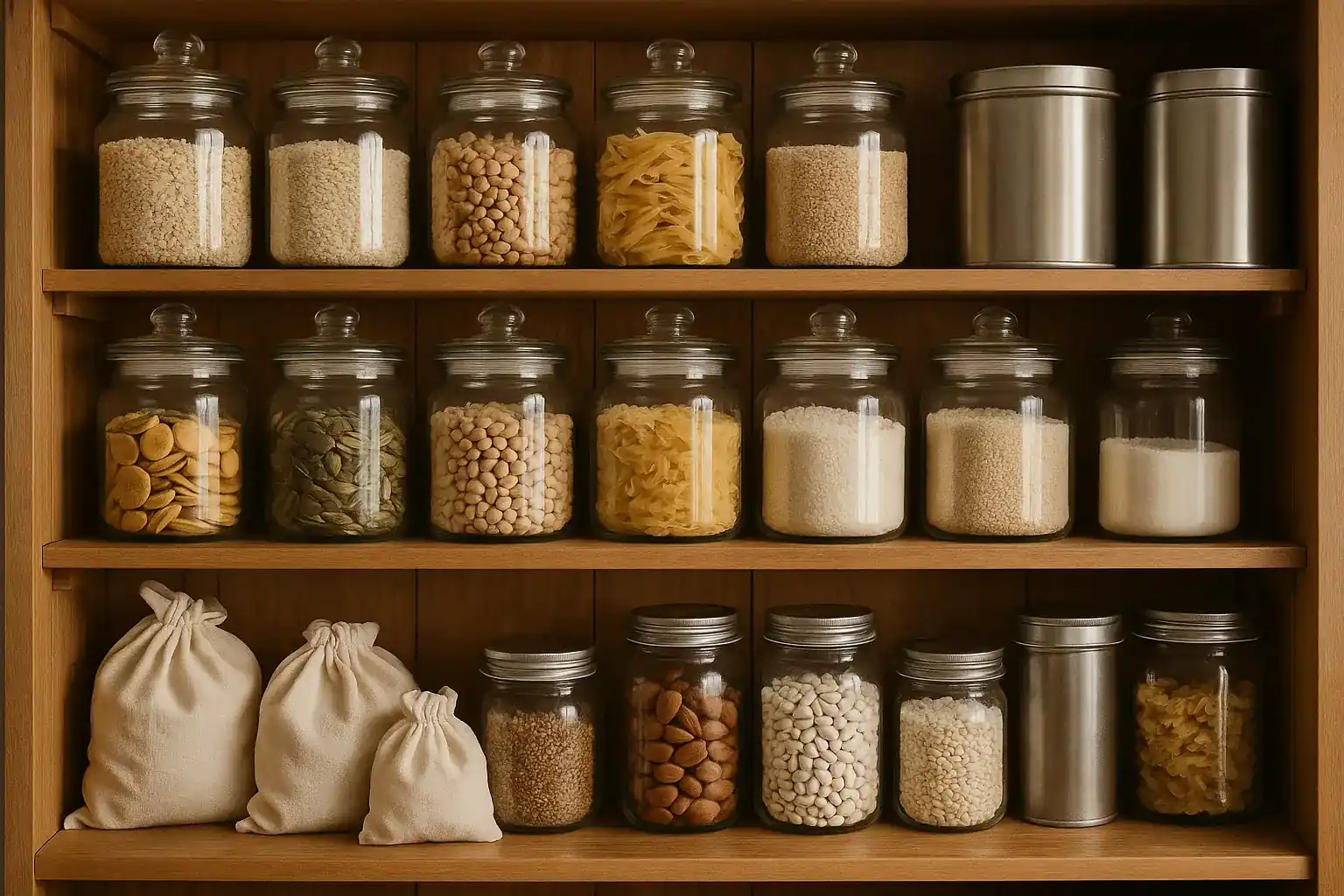
Say Goodbye to Single-Use: 10 Easy Swaps for a Plastic-Free Pantry
Insights on 10 easy swaps for a plastic-free pantry in a sustainable way.
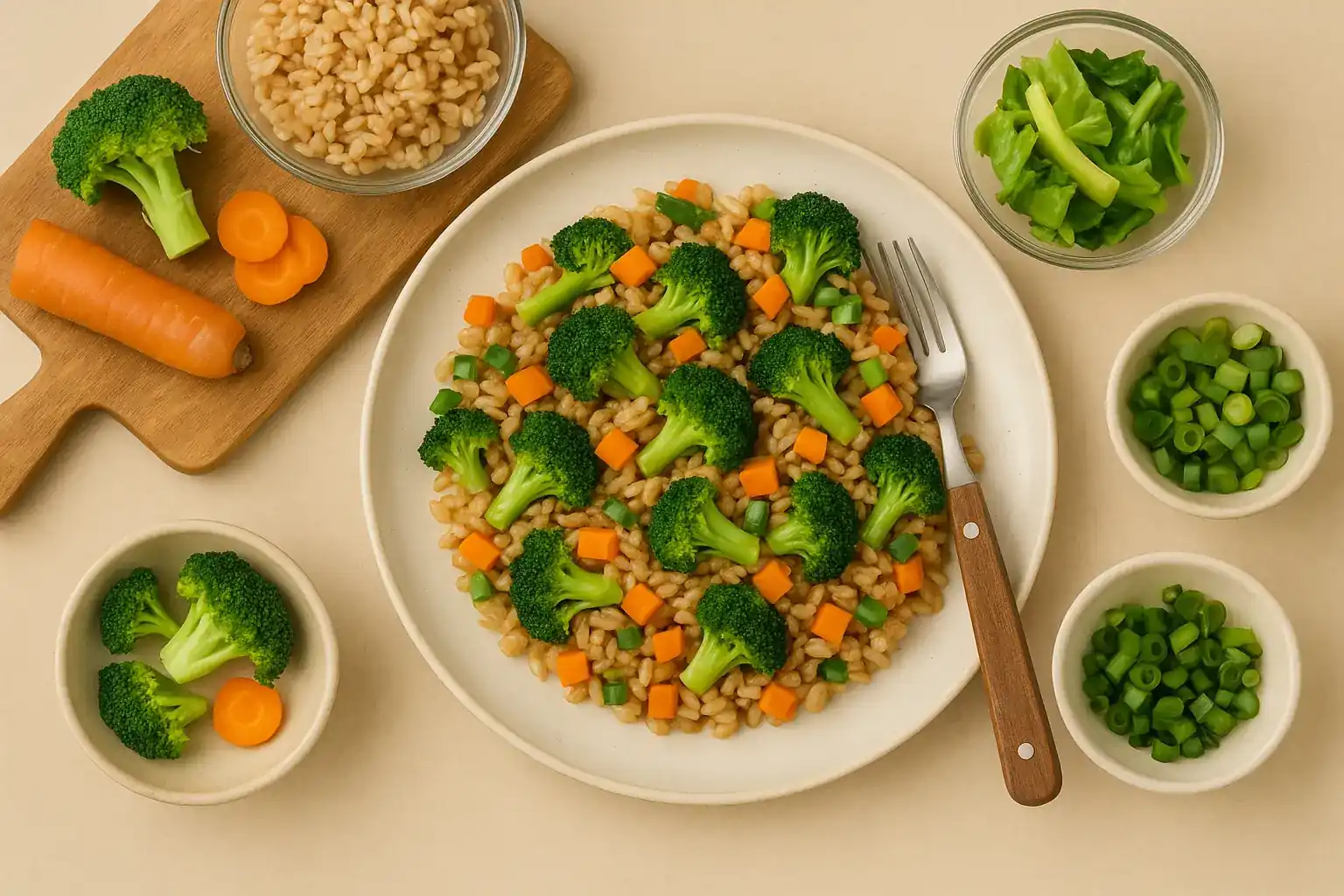
A Week of Delicious Transformations: Zero-Waste Recipes Using Your Leftovers
Insights on a week of zero-waste recipes using leftovers in a sustainable way.
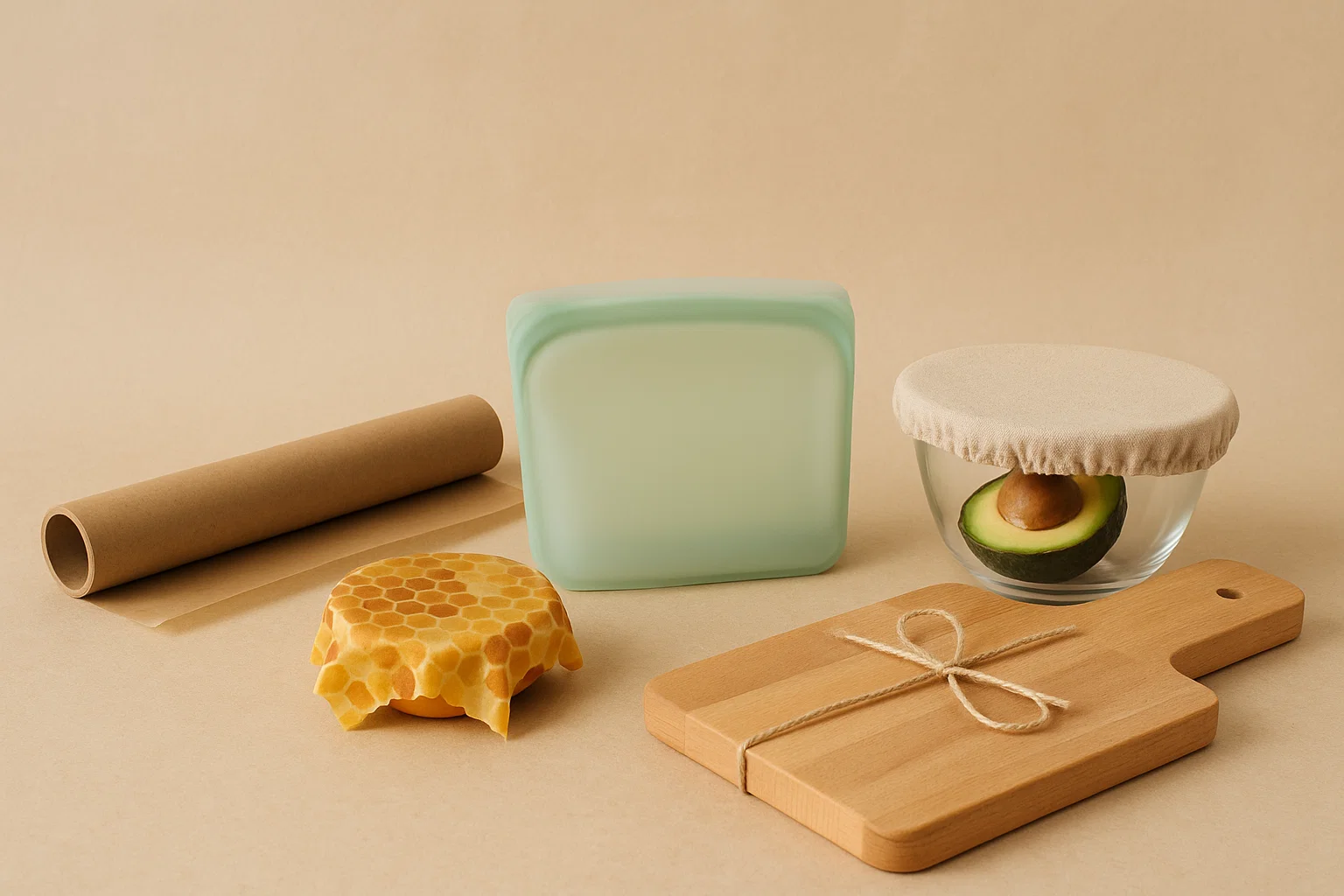
Beyond the Foil: Reusable Alternatives for Sustainable Baking and Food Storage
Opt for reusable silicone baking mats, covered bakeware, and beeswax wraps instead of aluminum foil.

Brew Better, Waste Less: Sustainable Alternatives to Single-Use Coffee Pods
Lower waste and enjoy better flavor with reusable pods, French presses, or Moka pots.
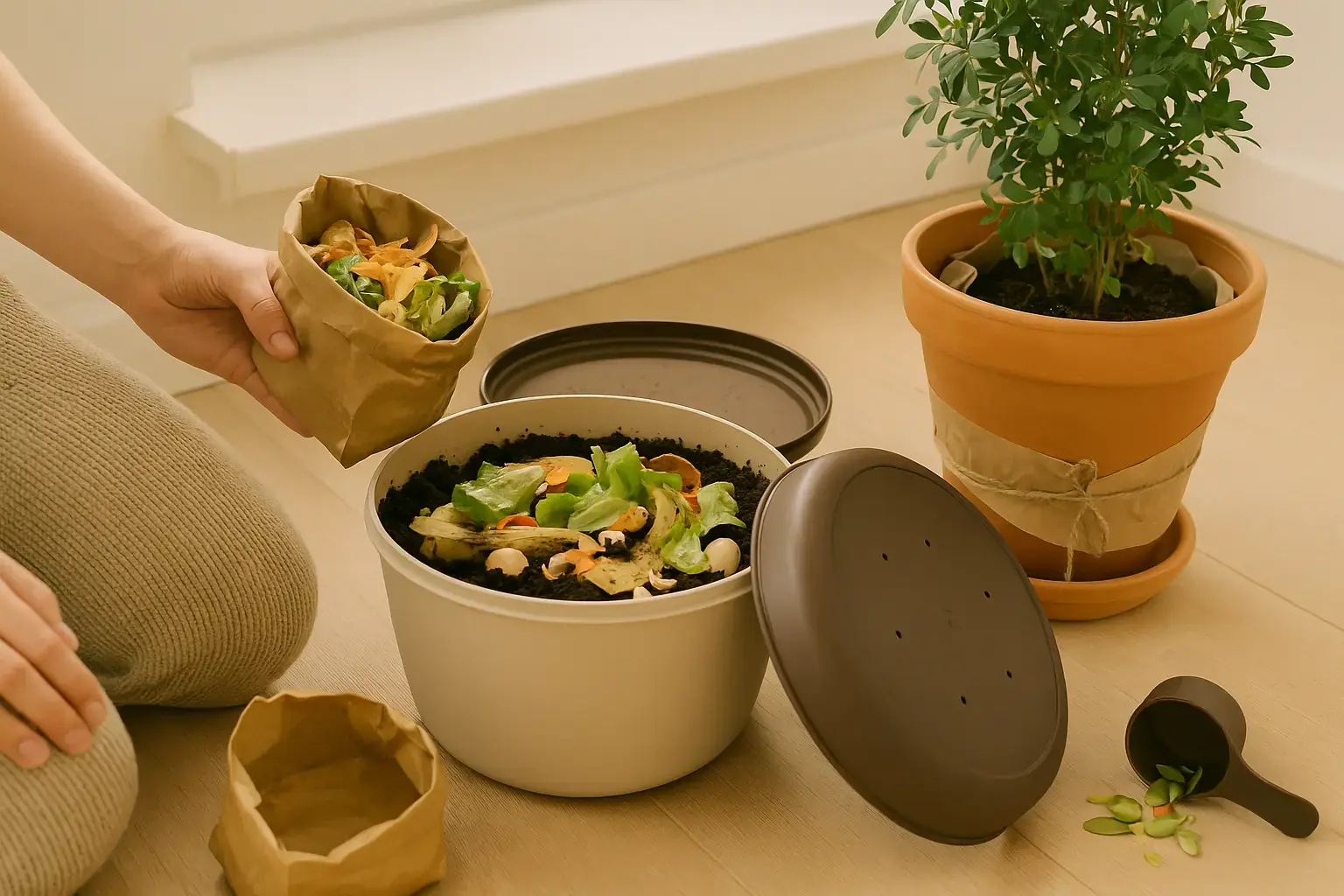
Compost Happens (Even in Apartments!): Your Beginner's Guide
Practical advice and actionable tips for composting 101.
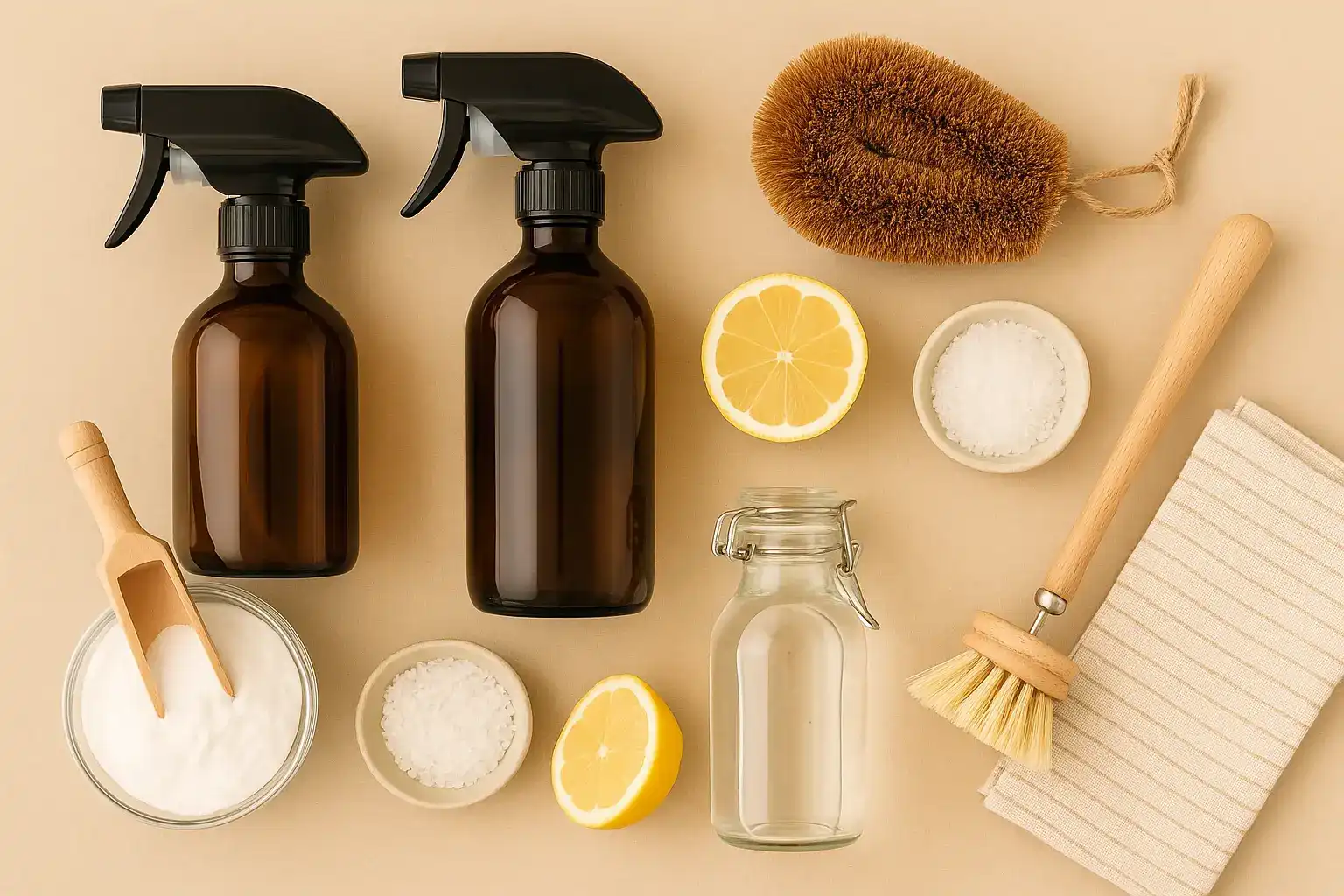
Sparkle & Shine Sustainably: DIY Kitchen Cleaners That Actually Work
Simple do-it-yourself ideas for an eco-conscious lifestyle.
Stay in the Loop
Get tips and insights tailored to your interests — no spam, just sustainability.